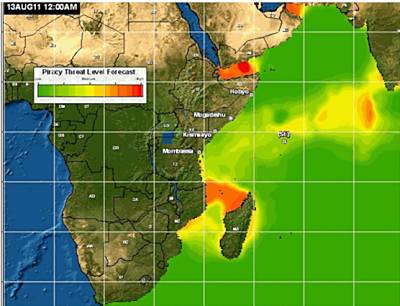NATIONAL HARBOR, Md. — The relationship between the active duty and the reserve components has fundamentally changed in the past 10 years, Defense Secretary Leon Panetta said here today.
“All told, more than 370,000 Guardsmen have been deployed to Iraq or Afghanistan since 2001, many of them multiple times,” he said to the National Guard’s Joint Senior Leaders Convention. “It’s a simple, and widely recognized, reality that we could not have sustained this war effort without the service and contributions of our Guardsmen � more than 670 of whom have paid the ultimate price for their service.”
The Guard and other reserve components are integral parts of the finest military in the world, the secretary said, and Guard members and their families have borne a heavy burden.
“These men and women have written a new chapter in this institution’s storied legacy, and firmly established the Guard as a vital operational arm of our military � a force far different from the strategic reserve many envisioned during the Cold War,” he said.
The Air National Guard provided 50 percent of the tanker capability for U.S., NATO and allied aircraft operating over Libya, the secretary said. “Having responded to the call at a moment’s notice, Air National Guard tanker assets from 10 states were in place and ready to operate the same day that the U.N. Security Council passed the authorizing resolution,” he said.
And the National Guard also has a large stateside mission. “When Hurricane Irene hit the eastern seaboard this year, nearly 8,000 Guard members from 18 states deployed, with equipment pre-positioned to ensure it was available for use,” he said.
The storm marked the first time the military designated dual-status commanders in response to an emergency, Panetta noted. “As secretary of defense, I was proud to be able to participate in this new approach to fostering greater cooperation between federal and state authorities.”
The secretary touted the move toward bolstering the Guard’s capability to respond to the horrific possibility of a chemical, biological, radiological or nuclear incident. The Guard has stood up 10 homeland response forces prepared to deploy within hours to save lives and provide essential command and control and security capabilities.
“Whether engaged in these domestic support missions or serving on the front lines in Iraq and Afghanistan, the men and women of today’s National Guard have proven themselves to be an extremely effective operational force over a decade of great demand,” Panetta said.
The Guard’s equipment is often the same or even ahead of their active-duty counterparts, the secretary said, and the quality of personnel has skyrocketed. “The Guard and reserve are increasingly indistinguishable from the active component,” he said. And active and reserve component personnel of all services have worked together closely for a decade. That experience “of fighting alongside each other,” has built trust and respect across the force, he said.
All U.S. troops will be out of Iraq by the end of the year, and in Afghanistan, Afghan security forces will take over all security there by the end of 2014, Panetta noted.
“While this will provide Guard members and their families with much-needed respite and a more balanced mobilization schedule, we need to be all the more thoughtful and careful in how we manage the reserve components going forward � particularly because it coincides with a time of growing fiscal constraint at home that will require tough decisions about force size and capabilities based on clear strategic priorities,” he said.
This does not mean that the active and reserve components can or should go back to the old relationship. The military must not forget the lessons learned about the National Guard’s central role and relevance in the military of the 21st century, Panetta said.
“A decade of war has honed the Guard into an effective, lethal, fighting force, and it would be a tremendous mistake, in my view, to put that capability back on the shelf,” he said.
Panetta asked the National Guard leaders to take back word to their troops that just as they have fought the wars the nation asked them to fight, he will fight the battles in Washington to ensure they get what they need and deserve.
Source:
U.S. Department of Defense
Office of the Assistant Secretary of Defense (Public Affairs)

 von
von 